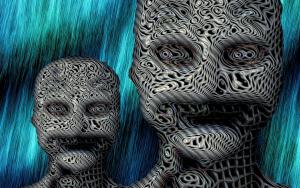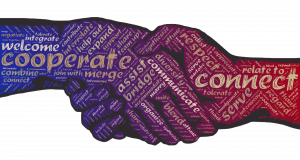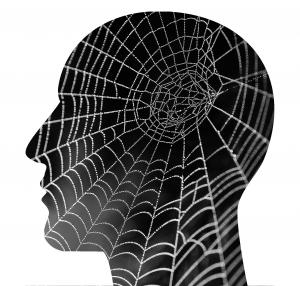
“Sakinah, can I ask why you got another tattoo? I just want to understand.” Someone said this after I had gotten my latest ink during a bout of mania. A simple “I don’t know”, had been my answer then. Regretful, and filled with shame, I thought I owed this person an explanation. But I didn’t have one. I mean, hey, I was manic. It seemed like a good idea at the time. Everything seems like a good idea when you’re in that mode. But I couldn’t say that. Nobody I know would understand what that means. Considering I’m a pretty ‘by the book’ Muslim, how could it seem like a good idea to do any of the things people do during mania? Those things are forbidden to me. But what people don’t get is that brain disorders like bipolar don’t discriminate. Mental illness is an equal opportunity disease. It can strike anyone, anywhere, and at any time.
I remember having an interesting conversation with an intake nurse at NIH a few years ago. She was screening me for a clinical trial with bipolar patients. I really wanted to participate in this trial because I wanted one on one care from NIH specialists. I also thought it would be good to see if a new treatment regimen would work for me. The nurse started asking about my episodes and how my behavior changed. “Do you binge on alcohol/drugs? Do you spend a lot of money? Are you impulsive? How long do typically you stay awake? Have you gotten tattoos? Do you dress differently?”…
The questions got more and more embarrassing and hit too close to home. I firmly told her that I was a Muslim and so some of those things couldn’t apply to me. I was wrong of course, I was just too ashamed to admit what I had done to a stranger. I couldn’t admit it to myself really. She corrected me saying, “That’s what mania is. If you haven’t done these things, not only is your diagnosis wrong, but you also don’t qualify for the study. Bipolar doesn’t care what religion you are.”
Needless to say I felt a bit sheepish after that. It bothered me that I had tried to mask my illness with my faith practice. I’m not sure why I did that. I knew what she was saying was true, I just hadn’t wanted to acknowledge the toll bipolar disorder had taken on my life. After talking with the nurse, I started looking at my diagnosis differently. I no longer wanted to shy away from what happened to me during an episode, because I knew I was sick. I’ve since decided to forgive myself for my past, and hopefully over time, the people around me will forgive me too.











